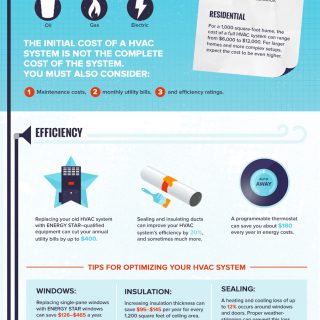Exploring The Environmental Benefits Of Heat Pumps - A Sustainable Home Heating Option
Exploring The Environmental Benefits Of Heat Pumps - A Sustainable Home Heating Option
Blog Article
Writer-Keating Hewitt
In an era where sustainability and energy effectiveness are extremely important, lots of companies look for eco-friendly heating remedies. One such solution is the heat pump.
A heat pump removes the heat in its environments and pumps it right into your home, causing among one of the most effective green central heater around. This procedure also creates zero greenhouse gas exhausts, making it a very sustainable innovation.
Energy Performance
Heatpump are extremely power efficient and require little upkeep. They utilize much less electricity than other heating systems and are without a doubt one of the most eco-friendly. They function well with rooftop solar and can frequently pay for themselves in utility cost savings alone.
They can additionally provide air conditioning, which is terrific for garage workshops, attic room hangouts and reward rooms, and home additions without expanding the existing ductwork. They can also be utilized for retrofits in existing homes with hydronic (water-based) distribution systems such as reduced temperature level radiators or radiant floorings.
Try to find models with SEER and HSPF rankings that meet or surpass Canada's minimum requirements, in addition to the criteria in your area. Greater rankings mean greater performance, which saves you money over time and decreases your carbon footprint. You might even receive refunds and rewards! The very best devices are those with a ground warmth exchanger for included performance. These systems can absorb thermal power from the ground during the winter and extract it in the summer.
Lowered Greenhouse Gas Emissions
Heat pumps run on power and essentially move warmth from the air, even when it's chilly exterior. They are able to extract the complimentary warmth trapped in air bits and relocate them indoors, reducing humidity while doing so.
Compared to gas heating systems, contemporary heatpump utilize less than one kilowatt of power per kilowatt of home heating power they produce. This makes them the most energy efficient heating option readily available with a COP (Coefficient of Efficiency) of four or even more. By lowering the demand for fossil fuels, heatpump help reduce greenhouse gas discharges and cut other major air contaminants.
Building decarbonization is an international important, and the HVAC field is a key chauffeur of that process. Whether mitsubishi heat pump installers making net no commitments, policy makers setting emissions limits, or tenants demanding greener areas, electrical heatpump are being identified as a vital solution. They are a cost-efficient way to minimize carbon emissions by eliminating the demand for fossil fuels in buildings.
Convenience
Heatpump can be made use of in many types of homes and structures-- with or without air ducts. They work with hot-water radiators, air-conditioning and programmable thermostats. They can replace heaters or be set up in brand-new homes. They can operate on solar panels, geothermal systems and even area heating resources like wastewater.
They're wonderful at delivering more warm per power unit. As on front page , an air-source heatpump produces as much as 3 or more heating units from each power system it eats.
Obtaining one of the most from your heatpump will rely on your climate area and quality of insulation. Seek models with ENERGY celebrity scores and compare their SEER or HSPF specs. In warmer climates, focus on SEER; in cooler regions, consider a system with a greater HSPF score. Additionally, buy air sealing and insulation to reduce the tons on your heat pump. That will boost power effectiveness and help you reach your Internet Absolutely no objectives quicker.
ac maintenance canterbury make use of wood pellets, chips or logs to develop warm and warm water. They are a good choice for off-grid buildings or those that want to get off the gas grid.
As a standalone heating unit, biomass can supply enough power to maintain your home warm all the time without the normal warmth drop off of various other renewable technologies. They can also be utilized combined with photovoltaic panels to maximise savings and benefit from RHI payments.
A drawback of these systems is the upfront cost and normal gas shipments. Usually, pellets will certainly need to be blown into a fuel store utilizing a vacuum system or they can be by hand fed into the boiler through a hopper. Logs are typically self-sourced from close-by forest or purchased wholesale. As well as this, they call for manual loading and may need cleaning often.